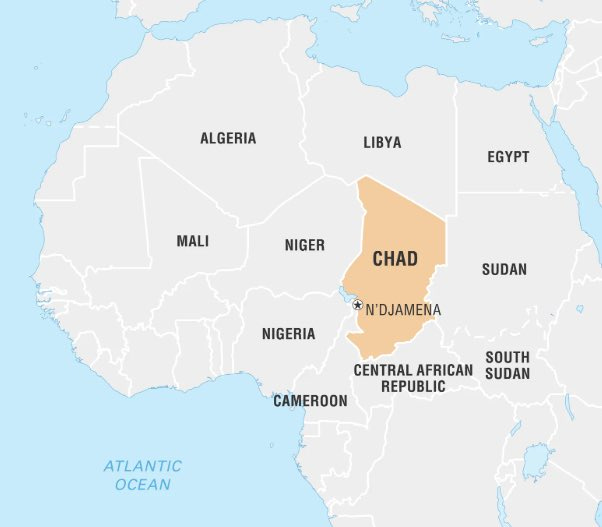Boko Haram Attack on Chad’s Presidential Palace: What Happened and Its Impact on Regional Security
On January 8, 2025, at approximately 8:45 PM local time, the presidential palace in N'Djamena, Chad, came under a coordinated assault by Boko Haram militants. The attack involved at least 24 armed individuals who engaged in a mass shooting and deployed a car bomb within the palace grounds. President Mahamat Déby was present in the palace during the incident. The swift response from the presidential guard resulted in the deaths of 18 attackers and injuries to six others. Regrettably, one member of the security forces lost their life, and three others sustained injuries, one of whom is in serious condition.
This brazen assault occurred shortly after a visit by Chinese Foreign Minister Wang Yi to the Chadian capital, underscoring the audacity and timing of the perpetrators. In the immediate aftermath, civilians were seen evacuating the area using cars and motorcycles, indicating the panic and urgency induced by the attack. The Chadian Army responded by cordoning off all routes leading to the presidential palace and deploying armored personnel carriers and tanks throughout the city to reestablish control and reassure the populace.
Boko Haram, an extremist group originating from Nigeria, has a history of perpetrating violent acts across the Lake Chad Basin, affecting countries such as Nigeria, Chad, Cameroon, and Niger. Their operations have traditionally targeted civilian populations, military installations, and symbols of governmental authority. The attack on Chad's presidential palace signifies a bold escalation in their tactics, directly challenging the central authority of the Chadian state.
The implications of this attack are multifaceted:
1. National Security Concerns:
A direct assault on the presidential palace exposes vulnerabilities in the nation's security apparatus. It raises critical questions about the effectiveness of intelligence gathering, threat assessment, and the readiness of security forces to counter such high-profile attacks. The incident may prompt a comprehensive review and overhaul of security protocols to prevent future breaches.
2. Regional Stability:
Chad plays a pivotal role in regional counterterrorism efforts, particularly through its contributions to the Multinational Joint Task Force (MNJTF) combating Boko Haram. An attack of this magnitude within Chad's capital could embolden extremist groups, potentially leading to increased attacks in neighboring countries and destabilizing the broader region.
3. Political Ramifications:
President Mahamat Déby, who assumed power following his father's death in 2021, has faced challenges in consolidating his leadership. This attack could be perceived as a direct challenge to his authority, potentially undermining public confidence in his administration's ability to maintain security and order. It may also influence upcoming political processes, including elections, as security becomes a paramount concern for the electorate.
4. International Relations:
The proximity of the attack to the visit by Chinese Foreign Minister Wang Yi could have diplomatic repercussions. It highlights the risks faced by international partners and may influence foreign investment and diplomatic engagements in Chad. The Chadian government will need to reassure the international community of its commitment and capability to safeguard foreign dignitaries and investments.
5. Counterterrorism Strategies:
The attack underscores the persistent threat posed by Boko Haram and may necessitate a reassessment of current counterterrorism strategies. This could involve increased military expenditures, enhanced regional cooperation, and potentially seeking additional international assistance to effectively combat the insurgency.
In response to the attack, Chadian officials have sought to project an image of control and resilience. Foreign Affairs Minister Abderaman Koulamallah, speaking from within the presidential palace, stated, "The situation is completely under control, there is no fear." He emphasized the readiness of soldiers to defend the president and the nation. Similarly, Infrastructure Minister Aziz Mahamat Saleh reassured the public by posting on social media, "No serious, no panic, the situation is under control."
Despite these assurances, the attack has inevitably instilled a sense of fear and uncertainty among the populace. The sight of military vehicles and tanks patrolling the streets of N'Djamena serves as a stark reminder of the potential for violence, even in the heart of the nation's capital. The government's ability to restore a sense of normalcy and address the underlying security challenges will be crucial in the coming days.
The international community has expressed concern over the incident, recognizing its potential implications for regional stability. Chad's strategic importance in the fight against extremist groups in the Sahel means that any significant security breach can have far-reaching consequences. It is anticipated that international partners will offer support to Chad in bolstering its security infrastructure and counterterrorism capabilities.
SOURCE: Osint




